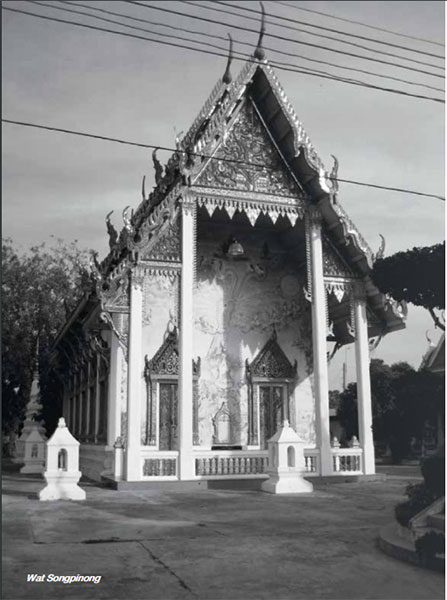
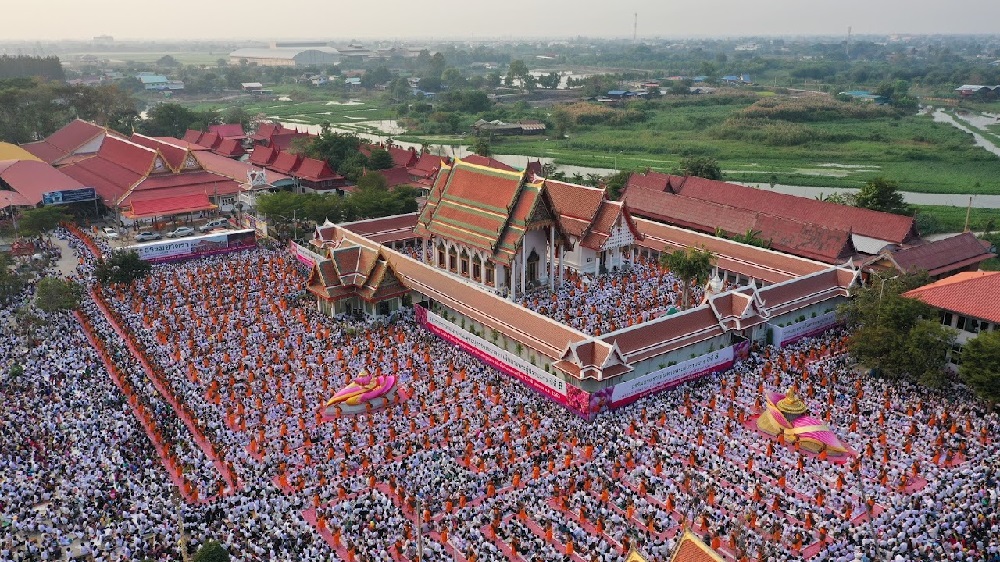
Wat Songpinong in present day
After that incident the thought of ordaining as a Buddhist monk never left Sodh's mind. He knew he could not shrug off the responsibilities to take care of his mother and the family. He needed to leave them enough savings to support themselves in his absence. So he set out to work with fervor in order to accumulate sufficient wealth for them to live on. After three years he finally made enough money to take care of his family's future.
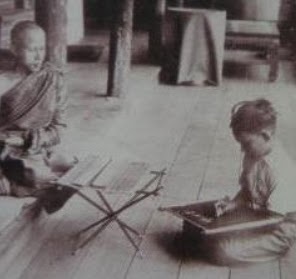
In May 1906, Sodh loaded sacks of rice onto his barges for the last time. He told the crew to make the trip to Bangkok on his behalf and gave his most trusted man the authority to manage the rice deal. After that he left the wharf, feeling like a free man.
Sodh entered Wat Songpinong as a postulant, or 'nag', an applicant/trainee for ordination. Venerable Palad ("Yang"), the abbot, taught him verses of ordination and abbreviated versions of the Monastic Discipline (Vinaya). He received his ordination at Wat Songpinong in July 1906 along with seven others. He was then 22 years old. Sodh was given the monastic name, Candasaro Bhikkhu1 (1Bhikkhu: a Buddhist monk) , a Pali2 name which means "the One with a Bright Radiance like the Moon" (2Pali: the ancient language of India used to record the Scriptures of the Theravada Buddhist school).
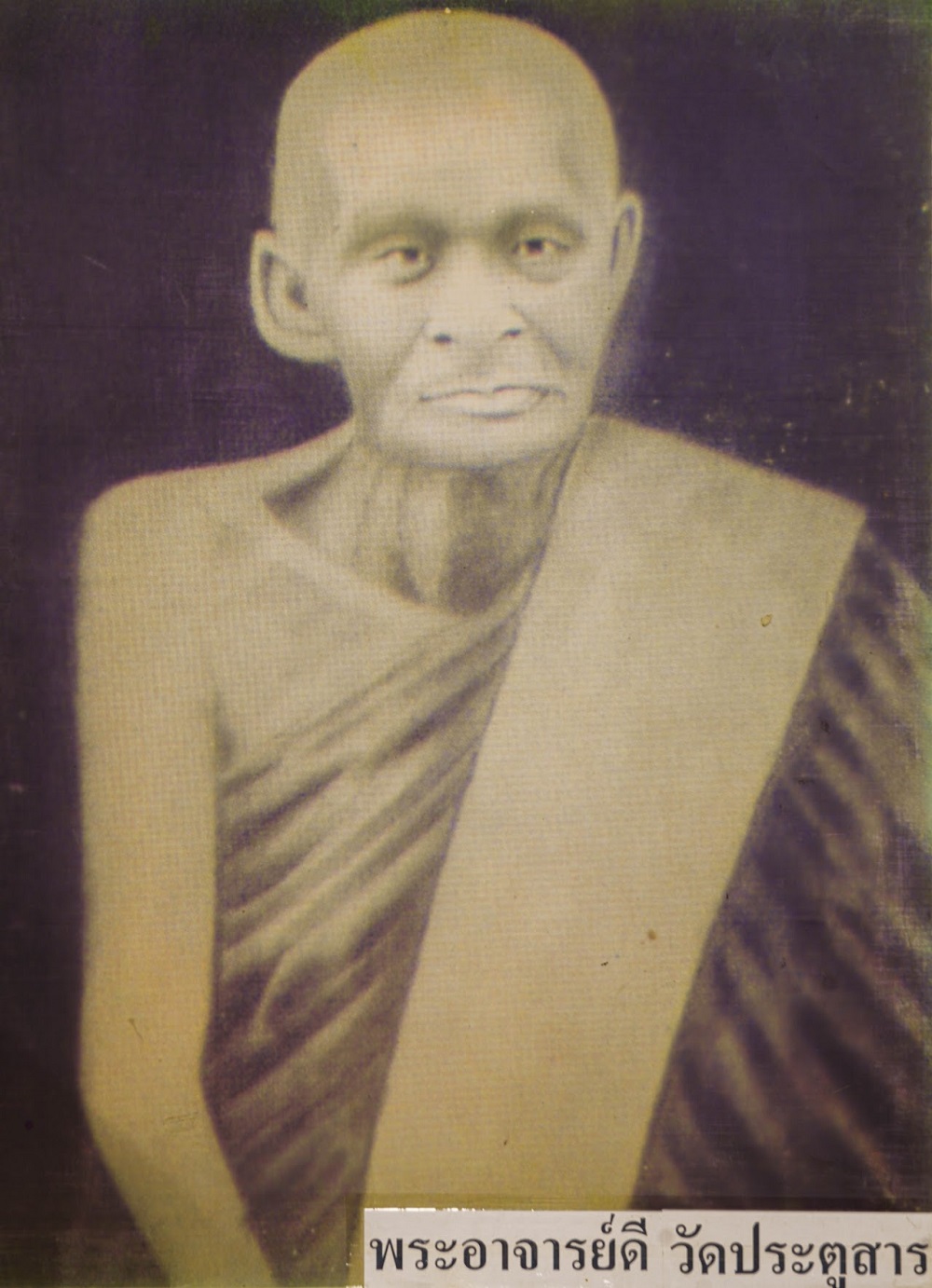
Venerable Dee
The preceptor who ordained him was Venerable Dee, the abbot of Wat Pratusarn, Suphanburi; the senior and junior ordination-teachers were Venerable Vinyanuyok and Venerable Noeng Indasuvanno, respectively.
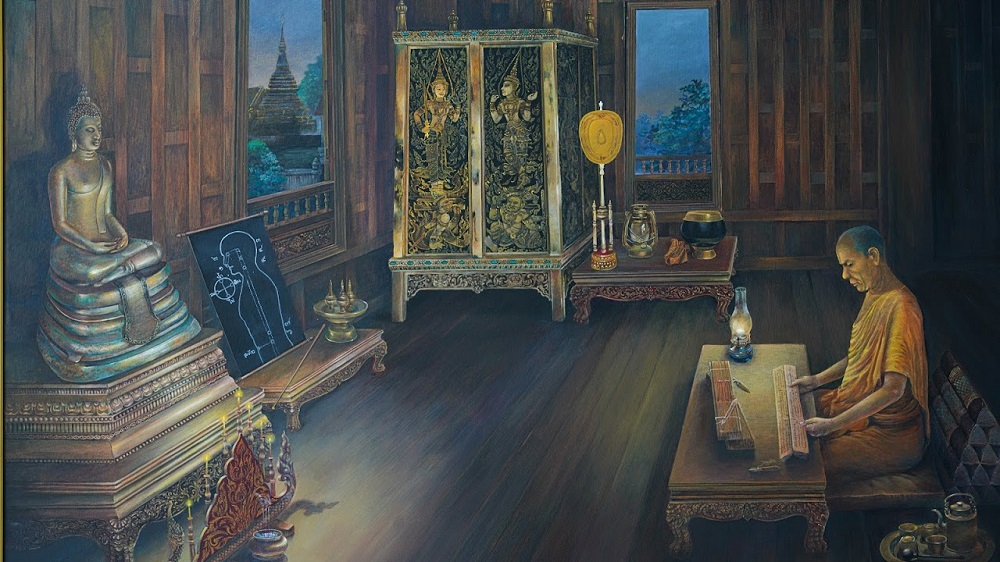
During his first rains retreat3 at Wat Songpinong (3Rains retreat (Vassa): the period of three months during the monsoon season when monks traditionally limit travel outside the temple and focus instead on meditation and scriptural studies), he was able to memorize the Patimokkha4 (4Patimokkha: the summary of the Monastic Precepts and rules in the Vinaya, recited twice a month in every monastery) by heart. He studied the scriptures and practiced meditation alongside. At one point in his scriptural study he came across a Pali word, 'avijjapaccaya' 5 (5Avijjapaccaya. Ignorance as a Requisite Condition. The word is explained in Paticcasamuppada Sutta (Discourse of Dependent Origination) as "avijja paccaya sankhara" meaning "With Ignorance as a requisite condition, arise Mental Formations" ), and was curious as to what this word meant. He asked the monks at the temple, and to his surprise, none of them knew the meaning. One monk told him, "Brother, we don't translate the Scriptures here. We just recite them. If you want to know more you will have to go to Bangkok to study."
He was perplexed by the monk's lack of textual scholarship. After seven months he decided to go to the capital to further his scriptural studies. He put away a bundle of the Mahasati patthana6 Sutta7 in a safe place at Wat Songpinong (6Mahasatipatthana Sutta: The Great Discourse on the Establishing of Mindfulness) (7Sutta (Skt. Sutra): discourse attributed to the Buddha or one of his close disciples), thinking as soon as he had learned enough Pali to be able to translate this bundle fluently that he would return to do so.
Candasaro left Wat Songpinong to further his Dhamma study at Wat Phra Chetuphon8 (8Wat Phra Chetuphon: also called Wat Pho and the Temple of the Reclining Buddha, one of the largest and oldest temples in Thailand). His younger brother, Phook, accompanied him to study there.
One night, in his fourth year as a bhikkhu, Candasaro had a dream. In his dream, a shadowy man appeared and offered him a bowl of sand. He took a pinch of it. When his brother was offered some, the boy took two handfuls. A few days later both of them fell ill with smallpox. Candasaro recovered, but his brother did not. The boy died later at their home in Songpinong. He was only 18. After his brother's cremation Candasaro returned alone to Wat Phra Chetuphon.